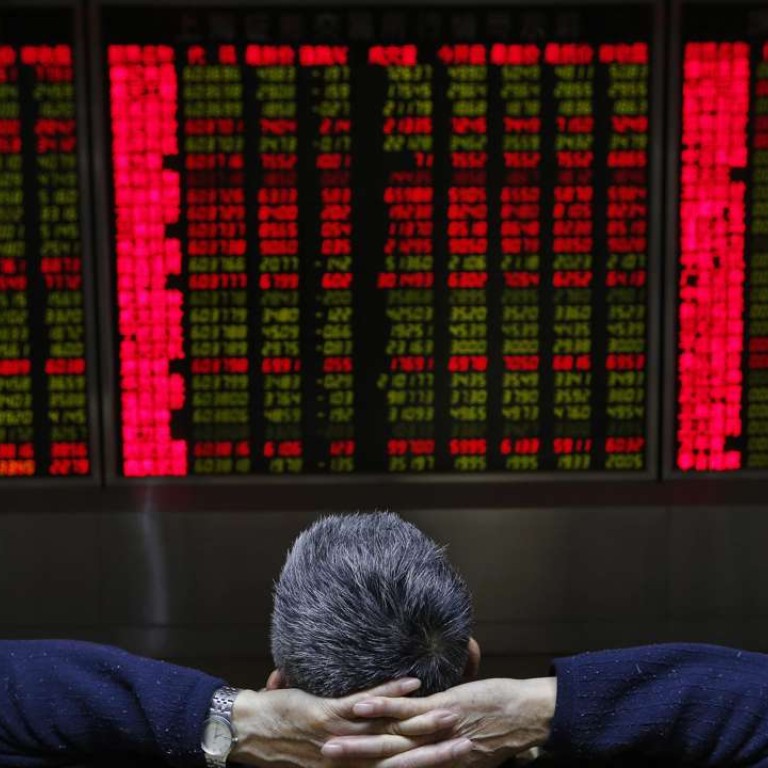
New | China’s IPO frenzy is back as speculators chase the momentum
Of the 13 stocks that made their trading debuts this week in Shanghai and Shenzhen, every single one surged by their allowable 44 per cent limit on the first day
China’s investment frenzy in initial public offerings (IPOs) is back, as a dearth of investable options in the country’s capital markets and excessive cheap money chase after the returns from first-day stocks trading.
Of the 13 stocks that made their trading debuts this week in Shanghai and Shenzhen, every single one surged by their allowable 44 per cent limit on the first day.
“This is like gambling - very risky,” said Ken Wong, an Asia equity portfolio specialist at Eastspring Investments. “These investors are driven by momentum, rather than fundamentals. ”
The frenzy is a radical departure from last year, which had a slow start in IPOs following a 2015 market rout. The number of companies that sold stock last year rose to 227, from 219 in 2015, while the proceeds from the IPOs declined 6 per cent to 150 billion yuan (US$21.8 billion).
One in every five of last year’s IPOs, or 48 of them, hit the 44 per cent price increase limit on their debut, and had their trading suspended in Shanghai and Shenzhen.
The Chinese regulators have repeatedly warned investors about the risks of chasing speculative returns in IPOs. The stock exchanges have also imposed rules to curb irrational buying, such as putting in daily trading limits and suspensions.
But the urgings and rules appeared to have fallen on deaf ears.
The price-earnings ratio of the Small & Medium Enterprises board exceeded 50 times, while the average PE ratio on the ChiNext board topping 60 times.
Speculators are also piling into IPOs in an attempt to get the most out of the market, before the regulator cracks down in irrational investments, or possible change in macroeconomic policies sap liquidity, brokers said.
Excessive valuation has invited closer scrutiny by the Chinese regulator, with the China Securities Regulatory Commission (CSRC) tightening its grip on IPO applications since the end of 2016.
The CSRC rejected 8 IPO applications in November and December, which accounted for 44 per cent of the total of 18 rejections last year.
“Regulators don’t like steep rises or falls,” said Alex Wong, director of asset management at Ample Capital in Hong Kong. “They will soon look into the irrational investment behaviour in the stock market. That’s prompted investors to chase the high-yield plays before the authorities take action.”
“The sentiment can turn around quickly. One day the new stock may surge forty percent, but the other day it may plunge,” he said.
Possible triggers include a sudden sap in market liquidity, crackdowns on speculative stock investment, major shareholders dumping shares to cash out, or revelations of negative corporate news, he said.
Ken Wong said the bubble in IPOs could vanish quickly and share prices don’t always outperform in the medium to long term.
“Investors need to be very careful in IPO investing. A lot of Chinese companies are aggressive in accounting before IPOs and often set high expectations for investors about their earnings. They often set the offer prices too high. But after the auditing, their financial numbers could worsen,” he said.
Ken Wong said institutional investors tend to focus on medium-to-long term investing, but they don’t see many attractive newly listed companies in mainland based on fundamentals at this moment.
“This is probably why many overseas institutional investors shy away from equities on the mainland,” Ken Wong said.
Yao Liqi, an equity analyst for Shenwan Hongyuan Securities, said the general economic climate and overall trend of regulatory reform are unfavourable in supporting high valuations of the market.
China’s economy grew 6.7 per cent in 2016 and is expected to further slow down this year.
Policymakers have also shown a tightening bias in monetary policy and pressed debt deleveraging amid concerns of a growing debt bubble.
“It’s very risky to chase high yields in a stretched market amid an environment of tightening monetary policy,” he said.

